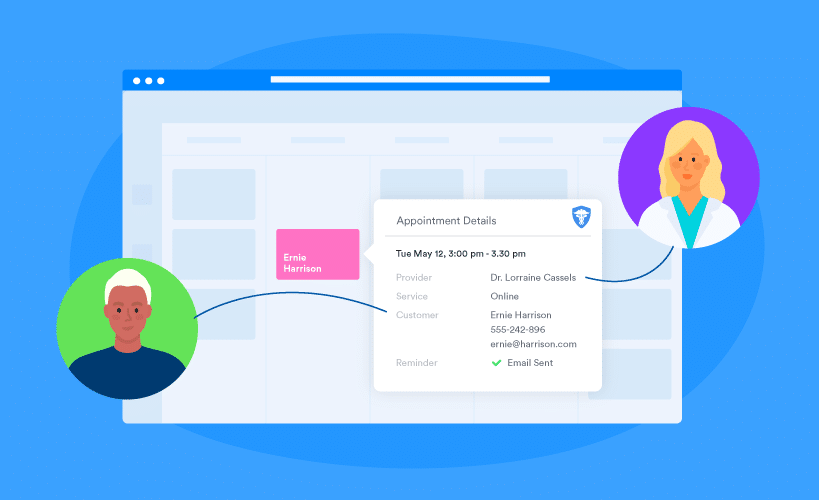Building backlinks in very small niches can be challenging. But it’s possible with the right approach.
In small niches, your audience is specific and limited. Finding quality backlinks requires creativity and effort. This guide will show you practical strategies to build backlinks in these tiny segments. You’ll learn methods tailored to reach niche-specific websites, blogs, and forums.
Understanding this will help you drive traffic and improve your site’s authority, even in a small niche. Stay with us to discover how to effectively connect with your niche audience and grow your online presence step-by-step.
Importance Of Backlinks
Backlinks are crucial for your website’s success, especially in very small niches. They act as votes of confidence from other websites, signaling to search engines that your content is valuable and trustworthy. Let’s dive into why backlinks are important and how they can boost your SEO and build authority in your niche.
Boosting Seo
Backlinks are one of the key factors that search engines use to rank websites. They help improve your website’s visibility in search results.
Think of backlinks as endorsements. When other sites link to yours, search engines see this as a sign that your content is credible.
This can lead to higher rankings, driving more organic traffic to your site. Have you ever noticed a sudden increase in visitors after gaining a few quality backlinks? That’s the power of effective SEO.
Building Authority
Backlinks also play a significant role in establishing your website’s authority. In small niches, where competition is limited, gaining backlinks can set you apart.
When well-known websites link to your content, it boosts your credibility. Imagine being recommended by an industry leader—it immediately elevates your status.
This not only attracts more visitors but also encourages other websites to link to you, creating a snowball effect. Are you leveraging this strategy to become a go-to resource in your niche?

Credit: www.prestigelinks.com
Challenges In Small Niches
Building backlinks in very small niches can be tough due to limited relevant websites. Creating valuable content and networking with niche influencers helps gain quality backlinks.
Building backlinks in very small niches can be challenging, yet immensely rewarding. You might think it’s a straightforward task given the niche specificity, but it comes with its own unique set of hurdles. Let’s dive into some of the key challenges you may face.Limited Opportunities
One of the biggest challenges in small niches is limited opportunities. You simply don’t have a plethora of websites available to reach out to for backlinks. In broader niches, there are numerous blogs, forums, and websites to tap into. In smaller niches, the pool is much smaller. This means you have to be more creative and strategic in your approach. For instance, I once worked in a micro-niche related to vintage typewriters. Finding relevant websites was tough. However, I discovered some online communities and niche forums that were goldmines for backlinks. Have you considered such hidden gems in your niche?High Competition
You’d think smaller niches would have less competition, right? Think again. The competition can be fierce. Since there are fewer relevant websites, everyone in your niche is vying for the same backlinks. This makes it crucial to stand out. What unique value can you offer that others can’t? I recall a time when I was working on a project in the niche of handmade leather goods. The competition for backlinks was tough. I had to leverage personalized outreach and offer exceptional content. Have you thought about what makes your content irreplaceable? Navigating these challenges requires persistence and creativity. What’s your biggest hurdle in building backlinks in your niche?Researching Competitors
Researching competitors is essential for building backlinks in small niches. By understanding who your competitors are and how they build backlinks, you can develop a strong strategy. This knowledge helps you identify opportunities and avoid pitfalls.
Finding Top Players
Start by identifying the top players in your niche. Use search engines to find websites ranking high for your target keywords. Make a list of these competitors. This list is your foundation for further research.
Also, use tools like Ahrefs or SEMrush. These tools can help you discover the most influential websites in your niche. They provide valuable insights and save you time.
Analyzing Their Backlinks
Once you have your list of top players, analyze their backlinks. Use tools like Moz or Majestic to see who links to them. This analysis reveals patterns and strategies used by your competitors.
Check the quality of their backlinks. Are they from reputable sites? Are they relevant to your niche? This information helps you understand what works and what doesn’t.
Look for common sources of backlinks. Are there specific websites that link to multiple competitors? These sites might be good targets for your outreach efforts.
Creating Quality Content
Building backlinks in very small niches requires creating quality content that is informative and engaging. Connect with niche-specific websites and blogs to share your valuable insights.
Creating Quality Content Building backlinks in very small niches can seem like an uphill battle. But, one of the most effective strategies is creating quality content. When you produce content that is valuable, informative, and engaging, other websites are more likely to link to it. This increases your site’s authority and improves your search engine ranking.Content That Attracts Links
Creating content that attracts links is crucial. Think about what your audience is searching for and tailor your content to meet their needs. Use data, case studies, and personal experiences to add depth and authenticity to your posts. Share unique insights that others in your niche haven’t covered. This makes your content a go-to resource. Engage with your audience by asking questions, encouraging comments, and responding to feedback. This interaction can lead to more shares and backlinks.Optimizing For Search Engines
Search engine optimization (SEO) is just as important as creating great content. Without it, your content might never be found. Use relevant keywords naturally in your content. This helps search engines understand what your page is about. Ensure your meta titles and descriptions are compelling. They should give a clear idea of your content and include your main keywords. Make your content easy to read. Use short paragraphs, bullet points, and headers to break up text. This keeps readers on your page longer, which signals to search engines that your content is valuable. Creating quality content and optimizing it for search engines can significantly improve your chances of earning backlinks. What unique value can you bring to your niche that will make others want to link to your content?Outreach Strategies
Building backlinks in small niches can be challenging. Outreach strategies play a key role in this process. They help you connect with relevant sites and create valuable backlinks. Let’s dive into two effective outreach strategies.
Personalized Emails
Personalized emails can be highly effective. They show that you have done your research. Start by addressing the recipient by name. Mention a specific article or project they have worked on. Explain why a backlink to your site would benefit their readers. Keep the email short and to the point. Avoid generic templates. Personalization increases your chances of getting a positive response.
Building Relationships
Building relationships is crucial. Interact with others in your niche. Comment on their blog posts. Share their content on social media. Engage with them on forums or groups. This creates a foundation of trust. Over time, they may be more willing to link to your site. Relationships take time to build but yield long-term benefits.

Credit: www.linkedin.com
Leveraging Social Media
Leveraging social media can be an effective way to build backlinks in very small niches. Social media platforms offer opportunities to connect with influencers, share valuable content, and engage with your target audience. This approach can significantly enhance your backlink strategy.
Engaging With Influencers
Connecting with influencers in your niche can yield valuable backlinks. Start by identifying influencers who share content related to your niche. Follow them on social media and engage with their posts. Leave thoughtful comments and share their content with your followers.
Building a relationship with influencers takes time. Be genuine and show interest in their work. Once you’ve established a connection, you can reach out and request a backlink. Influencers are more likely to link to your content if they know and trust you.
Sharing Valuable Content
Sharing valuable content on social media can attract backlinks. Post content that is informative, engaging, and relevant to your niche. This can include blog posts, infographics, videos, and case studies.
Make sure your content adds value to your audience. Use clear and simple language. Your goal is to create content that others find worth sharing and linking to. Encourage your followers to share your content by adding social sharing buttons on your posts.
Regularly update your social media profiles with fresh content. Consistency is key to maintaining your audience’s interest and gaining more backlinks.
Guest Posting
Guest posting is a powerful tool for building backlinks, even in very small niches. By writing and publishing articles on relevant blogs, you can attract quality traffic and establish authority. This method involves finding the right blogs and crafting compelling content. Let’s break down the process.
Finding Relevant Blogs
Start by identifying blogs in your niche. Use search engines to find blogs related to your topic. Look for blogs that accept guest posts. Check their domain authority and audience engagement. High domain authority means better backlink quality. Engaged readers increase the chances of traffic to your site.
Next, explore social media and online communities. Platforms like Twitter, LinkedIn, and niche forums can help. Network with bloggers and join groups related to your niche. Building relationships with other bloggers increases the chances of guest posting opportunities.
Crafting Compelling Articles
Once you find relevant blogs, start crafting your articles. Focus on providing value to the readers. Research the blog’s audience and their interests. This ensures your content resonates well with them. Write clear, concise, and engaging content. Avoid jargon and complex words. Keep sentences short and easy to read.
Include relevant keywords naturally in your content. This improves your article’s search engine ranking. Add internal and external links to support your points. Ensure your content is unique and plagiarism-free. This builds credibility and trust with the blog owner and their readers.
Submit your article with a brief author bio. Include a link to your site in the bio. This link will serve as a valuable backlink, driving traffic to your site. Remember to follow the blog’s guest post guidelines. This increases the chances of your article getting published.
Using Online Communities
Building backlinks in very small niches can be a challenge. But using online communities can make the task easier and more effective. These communities are filled with people who are passionate about your niche.
By engaging with them, you can build meaningful connections. This can lead to high-quality backlinks. Let’s dive into how you can use forums and answer questions to achieve this.
Participating In Forums
Forums are a goldmine for niche-specific discussions. They bring together enthusiasts, experts, and curious minds. By actively participating in forums related to your niche, you can establish yourself as a knowledgeable and helpful member.
Start by finding relevant forums. Websites like Reddit, Quora, and niche-specific forums are good places to begin. Sign up and create a profile that reflects your expertise.
When you join discussions, add value. Share insights, answer questions, and provide resources. Avoid spamming your links. Instead, build trust. Over time, you will find opportunities to naturally include your backlinks.
Answering Questions
Another effective strategy is answering questions. Platforms like Quora and Stack Exchange are great for this. These sites have dedicated sections for almost every niche.
When you answer questions, be thorough. Provide detailed, helpful answers. This shows that you are an expert in your field.
Include links to your content when they add value. For example, if someone asks about a topic you have covered in-depth on your blog, link to that post. This not only helps the user but also drives traffic to your site.
Have you ever found yourself deeply engaged in an online discussion, only to realize you’ve spent hours on it? Use that passion to your advantage. Your genuine interest will shine through, making others more likely to trust and follow your links.
Are you ready to dive into online communities to build your backlink profile? It’s time to start participating and answering questions. Your niche awaits your expertise!
Monitoring Progress
Building backlinks in very small niches can be challenging, but monitoring your progress is crucial. This ensures you’re on the right track and helps you identify what strategies work best. Let’s delve into how you can effectively monitor your backlink progress.
Tracking Backlinks
Tracking backlinks should be your first step. Use tools like Ahrefs, SEMrush, or Moz to keep an eye on the backlinks you’ve gained. These tools offer insights into the quality and quantity of your links.
Create a spreadsheet to log your backlinks. Include columns for the URL, domain authority, and anchor text. This helps you see patterns and identify high-quality links.
If you notice a drop in backlinks, investigate the cause. It could be due to a change in content or a website shutting down. Act quickly to replace any lost links.
Adjusting Strategies
Adjusting your strategies based on your findings is key. If you see that guest posts are bringing in more links, focus more on guest blogging. If your infographics are being widely shared, create more of them.
Don’t be afraid to pivot your strategy. Sometimes what works in one niche may not work in another. Regularly review your data to stay agile.
Ask yourself: Are you targeting the right websites? Are your outreach emails effective? Tweaking these elements can make a big difference.
Building backlinks in a small niche requires dedication and smart monitoring. Track your backlinks diligently and adjust your strategies as needed. This approach will help you build a robust backlink profile, even in a narrow field.

Credit: www.seoclerk.com
Frequently Asked Questions
How To Build 100 Backlinks In 30 Days Or Less?
Create high-quality content. Guest post on relevant blogs. Engage with influencers. Use social media for promotion. Utilize forum and Q&A sites.
Is 1000 Backlinks Good?
Yes, 1000 quality backlinks can significantly improve your website’s SEO. Focus on acquiring relevant and authoritative links.
How To Find Niche-related Backlinks?
Find niche-related backlinks by researching competitor backlinks, using backlink tools, and guest posting on relevant blogs. Engage in forums and industry-specific directories.
How Do Beginners Get Backlinks?
Beginners get backlinks by creating quality content, guest blogging, engaging on forums, building relationships, and submitting to directories.
Conclusion
Building backlinks in small niches requires creativity and persistence. Focus on quality over quantity. Connect with niche influencers. Share valuable content to attract organic links. Engage in relevant forums and communities. Collaborate on guest posts and interviews. Remember, patience is key.
Results take time, but consistent efforts pay off. Keep refining your strategies. Stay dedicated to your niche. Success follows those who remain committed.





